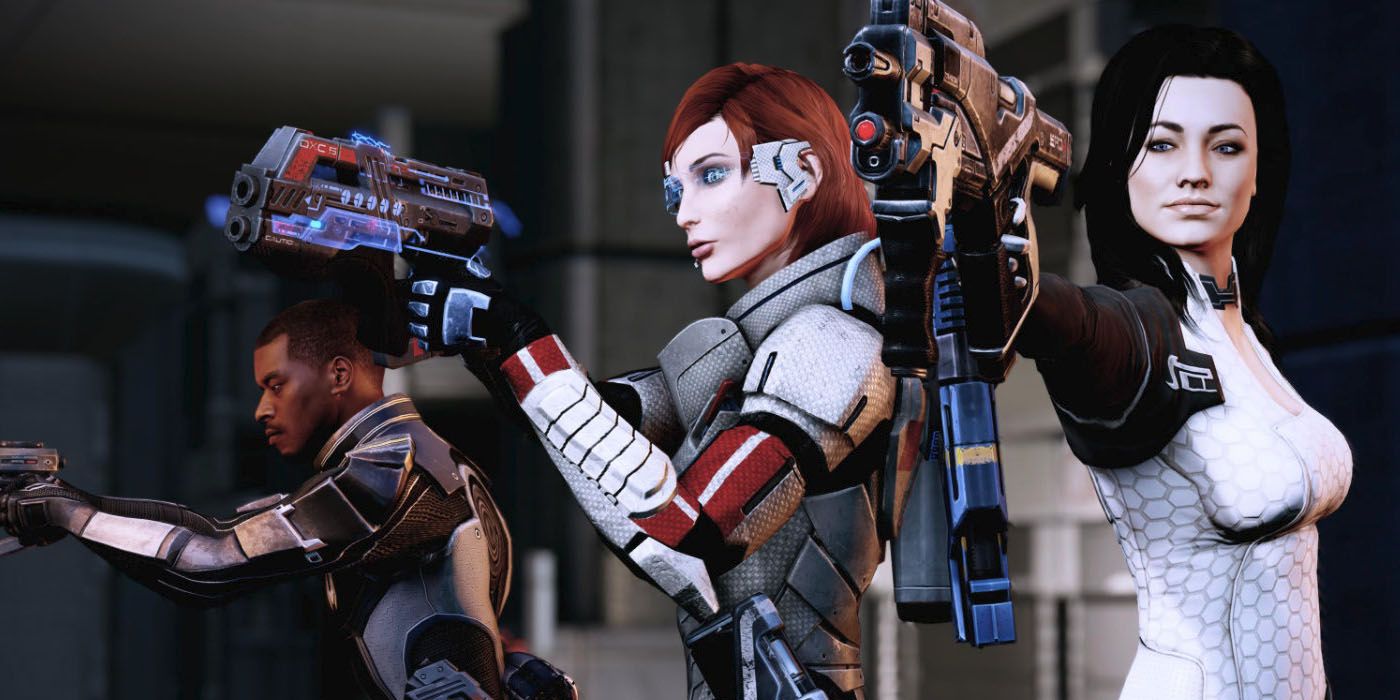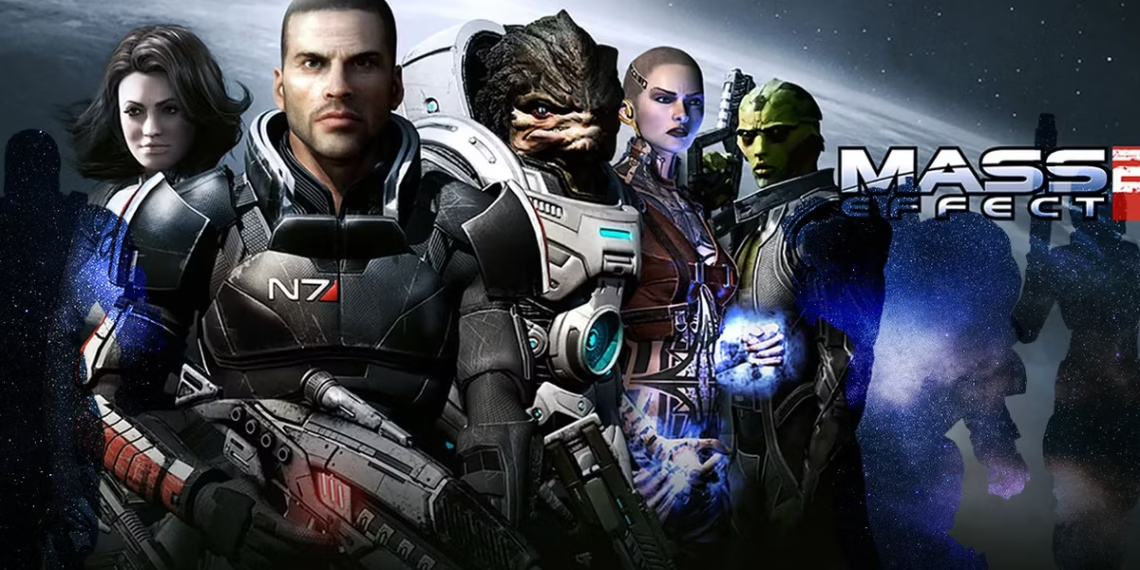There are few video games that have left as profound an impact on storytelling and character-driven gameplay as Mass Effect 2. Released in 2010 by BioWare, this space opera sequel redefined what it meant to combine cinematic narrative with player choice. It wasn’t just a game — it was an experience that made players feel part of something larger, something alive, something personal.
From its emotionally charged opening sequence to its unforgettable finale, Mass Effect 2 elevated the art of interactive storytelling, blending science fiction, moral complexity, and deep human emotion in a way few games have ever achieved.
The Heart of Mass Effect 2
What makes Mass Effect 2 so enduring isn’t only its gameplay mechanics or polished visuals — it’s the heart beating at the center of it all: its story, its characters, and its choices.
The game begins with tragedy. Commander Shepard, the hero of the first installment, faces death in the cold vacuum of space. Yet death is not the end — Shepard is resurrected by the shadowy organization Cerberus, led by the enigmatic Illusive Man. From this point on, the player’s journey is no longer about saving the galaxy from faceless enemies, but about understanding the price of survival and leadership.
Every mission, every dialogue choice, and every team interaction deepens this theme. Shepard isn’t merely a commander; they are a symbol — of hope, of defiance, of humanity’s ability to rise from the ashes.
The Suicide Mission – Risk, Loyalty, and Sacrifice
At the heart of Mass Effect 2 lies the “Suicide Mission,” one of the most memorable finales in gaming history. The stakes couldn’t be higher: Shepard must recruit a diverse crew of specialists, earn their trust, and lead them on a mission that most believe impossible. The beauty of this narrative arc lies in how personal it feels.
Every team member has a story. Each has fears, regrets, and dreams that shape how they fight and live. Whether it’s Garrus Vakarian seeking justice, Tali’Zorah defending her honor, or Mordin Solus confronting the morality of his past work on the genophage, every interaction matters.
If the player takes time to listen, to understand, to build loyalty — the mission becomes a triumph. If not, beloved characters die. The ending doesn’t rely on a single choice but on a web of decisions woven throughout the game. That’s what makes the finale so powerful — it’s not about luck; it’s about consequence.
The Art of Building Bonds
One of the greatest triumphs of Mass Effect 2 is its character writing. BioWare crafted a cast so vivid, so human, that players still remember them years later.
Each squad member is a reflection of Shepard — a mirror to the themes of identity, redemption, and purpose. Take Jack, the biotic powerhouse scarred by experimentation, who learns trust through Shepard’s compassion. Or Thane Krios, the dying assassin seeking spiritual peace. Or Miranda Lawson, genetically engineered for perfection but yearning for acceptance.
These relationships don’t just exist for narrative flavor; they shape the emotional tone of the entire experience. Through dialogue, loyalty missions, and shared moments aboard the Normandy SR-2, players come to care deeply for their team.
When the final mission arrives, their survival feels like a personal responsibility. And when a character dies because of an overlooked decision, the loss cuts deep — because you knew them, not as pixels, but as people.

Gameplay and Design – Balancing Story with Action
Beyond its storytelling, Mass Effect 2 refined the gameplay of its predecessor. The combat became tighter and more fluid, merging third-person shooting with tactical squad commands. Each class — from the gun-focused Soldier to the biotic Adept — offered unique playstyles that encouraged strategic thinking.
BioWare also streamlined exploration. The cumbersome planetary scanning and long elevator rides from the first game were replaced with a sleeker, faster-paced system that kept players immersed. The Normandy itself became a character — a living, breathing hub where dialogue, upgrades, and personal moments unfolded.
Visually, the game stood out at its time. The art direction combined the clean futurism of starships with the gritty reality of war-torn planets. The color palette, soundtrack, and cinematic camera work gave every scene weight and emotion.
Yet what made these design elements remarkable was how seamlessly they served the story. Every explosion, every pause, every choice — all contributed to the larger emotional tapestry of the game.
Themes of Redemption and Humanity
If there’s a single thread running through Mass Effect 2, it’s redemption. Every character, including Shepard, wrestles with it. The crew is made up of outcasts, criminals, scientists, and survivors — people given a second chance to make things right.
Shepard’s resurrection at the start of the game sets the tone: this is a story about coming back from failure, about finding purpose in chaos. The game asks hard questions — Can good come from evil actions? Does the end justify the means? What defines humanity when technology can resurrect the dead?
Even the enemies reflect these questions. The Collectors, who abduct human colonies for mysterious experiments, are not simple villains; they are tragic remnants of a once-great species manipulated by an unseen force — the Reapers.
Through it all, the game invites players to consider what it means to be human in a universe filled with aliens, machines, and moral ambiguity.
Music, Atmosphere, and Emotion
Few games have used sound and atmosphere as masterfully as Mass Effect 2. Jack Wall’s haunting score combines electronic tones with sweeping orchestral melodies, creating a soundscape that feels both futuristic and emotional.
The quiet hum of the Normandy between missions, the distant echoes of alien worlds, the pulse of combat — all contribute to the immersive experience. The music builds emotional continuity, linking gameplay moments to narrative beats.
When the main theme swells during the final mission, it’s not just music — it’s memory. It’s every decision, every bond, every sacrifice resonating in a single note.
The art direction complements this perfectly: dimly lit corridors, star-filled vistas, and stark contrasts between polished human technology and alien designs. It’s a universe that feels alive — not sterile or abstract, but tactile and soulful.
The Legacy of Mass Effect 2
Even over a decade after its release, Mass Effect 2 remains one of the most celebrated games in history. Critics hailed it as a benchmark for storytelling, and players continue to revisit it for its characters and choices.
Its influence is visible in countless modern titles — from narrative-driven adventures to open-world RPGs that emphasize player choice. The “loyalty mission” structure became a model for how to balance side quests with emotional depth.
But perhaps its greatest legacy lies in how it changed perceptions of what a video game could be. It proved that games could tell stories with the nuance of cinema, the depth of literature, and the agency unique to interactive media.
When the credits rolled, players didn’t just remember missions — they remembered relationships, emotions, and the feeling of being part of something meaningful.
The Player’s Story – A Galaxy of Choices
Unlike many games where the story unfolds the same way for everyone, Mass Effect 2 made each playthrough uniquely personal. Every dialogue choice, every decision about who lives or dies, shaped the player’s version of Shepard.
Some saw Shepard as a noble hero, saving the galaxy through empathy and diplomacy. Others played as a ruthless pragmatist, willing to make sacrifices for the greater good. Both were valid — both were their stories.
The beauty of this system lies in its continuity. Choices made in the first game carry over, and decisions here would ripple into the third installment. BioWare crafted not just a game, but a trilogy of interconnected lives and consequences.
This gave players ownership of their journey — a feeling that their version of Shepard, their team, their mission, truly mattered.
A Universe Worth Remembering
What sets Mass Effect 2 apart from other science fiction games is its emotional authenticity. It’s not just about aliens or spaceships — it’s about people. It’s about trust, loss, love, and the burden of leadership.
The writing never treats the player as a spectator; it treats them as a participant. Every choice is an invitation to feel, to reflect, to decide what kind of leader Shepard should be.
That emotional investment is what keeps players returning, even after years. They don’t replay it for higher scores or better gear — they replay it to reconnect with the characters, to make different choices, to see how small acts of kindness or neglect can alter fate.
It’s rare for a game to evoke such introspection. Yet Mass Effect 2 achieves it naturally, through storytelling that trusts the player to care.
Conclusion
At its core, Mass Effect 2 isn’t just a sci-fi adventure. It’s a meditation on humanity — on loyalty, love, sacrifice, and the choices that define us. It bridges the gap between art and entertainment, proving that interactive storytelling can be just as powerful as any film or novel.
Years after its release, players still speak of it with reverence. They remember not only the battles and missions but the quiet conversations, the friendships, the heartbreaks.
It’s that emotional resonance — that rare blend of heart and heroism — that makes Mass Effect 2 timeless. In an era of fleeting digital experiences, it stands as a testament to what games can achieve when crafted with purpose and soul.
When the Normandy flies once more and Shepard looks out into the endless stars, the message is clear: some stories never end — they live on in those who played them, believed in them, and felt them.
Also read :Paintball Games: The Ultimate Battle of Strategy, Speed, and Adrenaline















